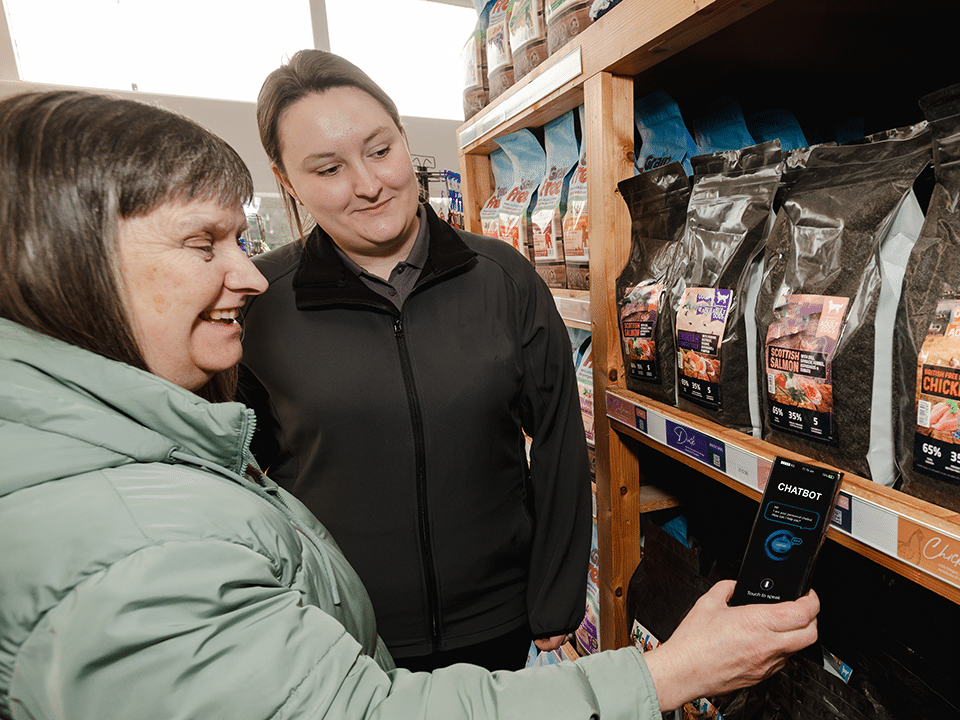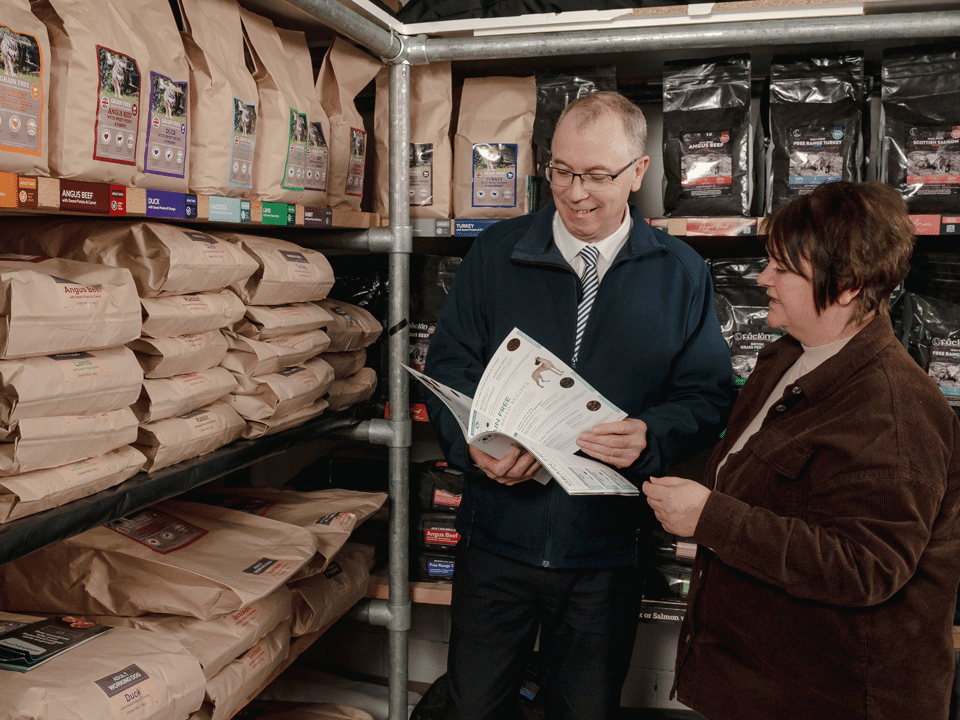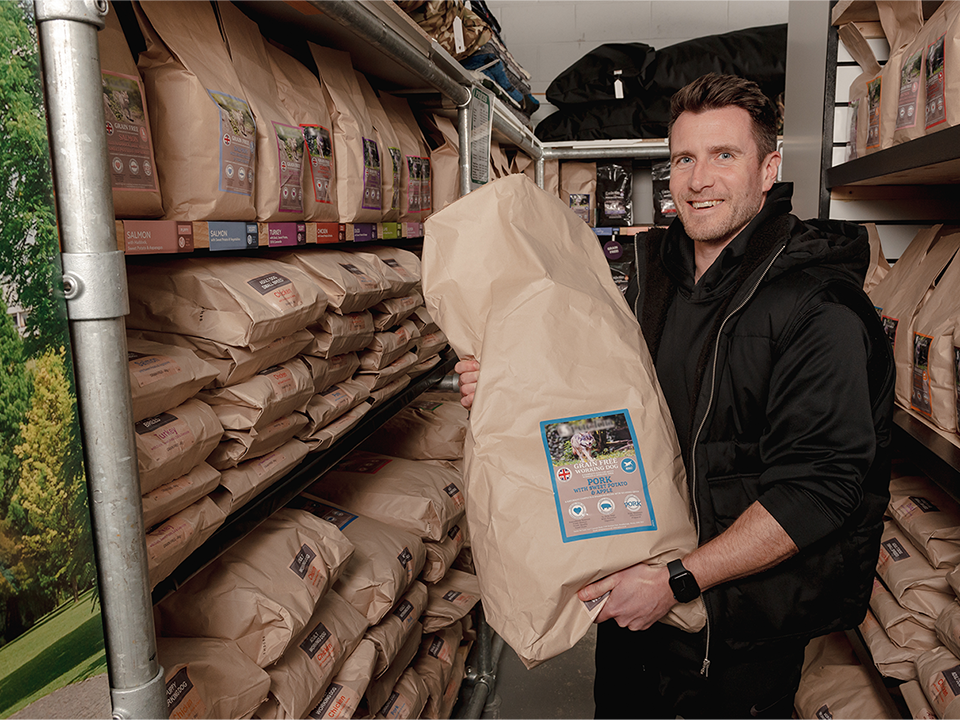
What Should You Feed Large Breed Puppies?
You may be wondering what you should feed large breed puppies. The dietary requirements of large and small breed puppies differ somewhat from those of their adult counterparts. Growth and development bring both increased and decreased nutrient requirements compared to adult maintenance. Meeting these dietary needs through a balanced diet is essential to ensure both short- and long-term health.
Although adult body weight will be considerably greater, the nutritional requirements of a large breed puppy compared to those of medium or small breeds vary relatively little. Once weaned, all puppies require a diet higher in protein than that of adult dogs. A minimum recommendation is 25 g per 100 g of dry matter (DM) during the first 14 weeks, reducing to 20 g per 100 g DM in the late growth period. This later phase is more prolonged in large breed puppies, lasting up to 18–24 months compared to 10–12 months for small breeds and 15–18 months for medium breeds.
Giant Portions? – How Much Food for Large Breed Puppies
Feeding for maximum growth is not the same as feeding for optimum growth. A key issue with large breed puppies is overfeeding. Although nutrition must be adequate to support development, the growth of a large breed puppy must be carefully monitored. There may be a temptation to increase the quantity of feed to account for the puppy’s increased size.
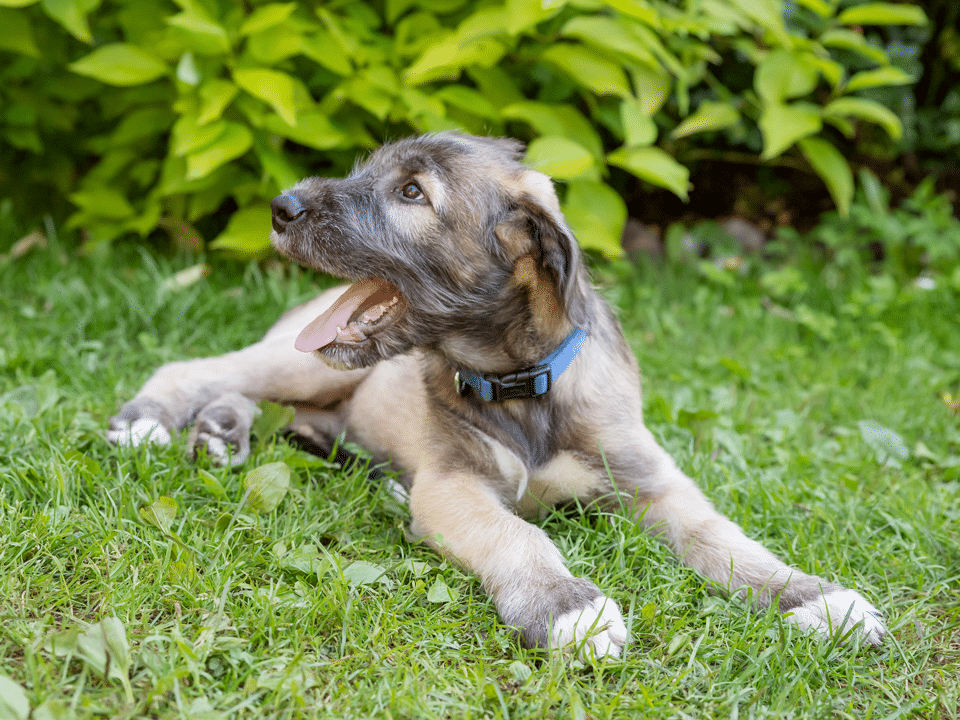
However, overfeeding can result in an oversupply of certain nutrients and a rate of weight gain that the developing skeletal system cannot adequately support. Such additional stress has been linked to bone abnormalities and orthopaedic conditions, which may persist into adulthood.
Naturally, a puppy’s stomach is smaller than that of an adult dog. It is therefore advisable to divide feeding into a minimum of three or four meals per day. This approach helps maintain energy levels over a prolonged period and ensures that a sufficient quantity of food is consumed. Similarly, free feeding is not recommended because it is difficult to monitor individual consumption. When feeding several puppies from a litter, it is impossible to account for one puppy gorging while another under-eats.
Large breed owners may also wish to consider the kibble size of dry feeds. With a larger puppy comes a bigger mouth and dentition capable of handling larger kibble sizes. This can help slow down consumption compared to the small kibble sizes often found in commercial puppy feeds. Moreover, smaller meal sizes combined with a slower rate of consumption are preferable eating habits to instil in large breed puppies in order to reduce the risk of gastric dilatation–volvulus (GDV), a concern often associated with large breeds.
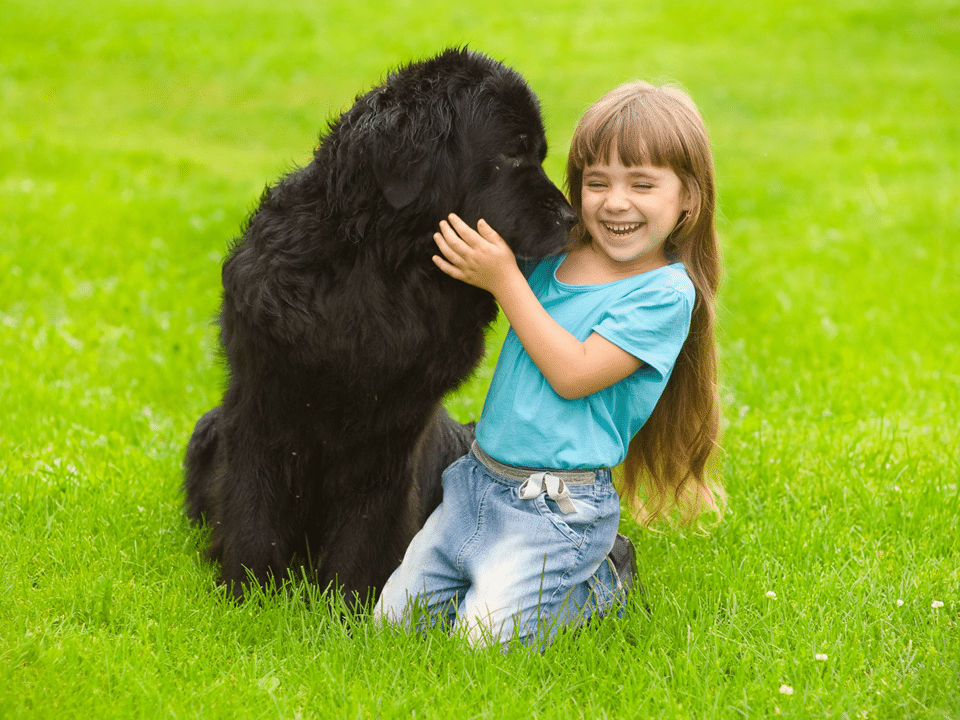
Bone Development in Large Breed Dogs
A high calcium intake can affect skeletal development in large breed dogs, particularly during the early growth phase. Consequently, a strict maximum of 1.6 g per 100 g DM is recommended for foods intended for large breed puppies.
This maximum can be increased to 1.8 g per 100 g DM for all breeds during the late growth phase, except for Great Danes, for which a maximum of 1.6 g per 100 g DM is advised. Ideally, the ratio of calcium to phosphorus in the diet should be 1:1, with a maximum of 1.6:1 during early growth and 1.8:1 during late growth.
Vitamin D influences skeletal development, either indirectly by enhancing intestinal calcium absorption or directly by stimulating bone mineralisation. Evidence of disturbed bone formation in Great Dane puppies fed diets containing elevated vitamin D levels has led to a maximum nutritional limit of 320 IU per 100 g DM in the FEDIAF Nutritional Guidelines, although a lower legal maximum of 227 IU per 100 g DM overrides this in the UK and Europe.
It is important that owners understand there is no need to supplement additional vitamins or minerals if a complete and balanced diet is fed. Supplementation through meal toppers or tablets can result in an oversupply that may be detrimental to health.
Why Feed a Large Breed Puppy Recipe?
Healthy growth and bone development in puppies is an area of increased focus among large breed owners. Meeting the dietary needs of large breed puppies is vital to ensure healthy development and longevity. This can be achieved by feeding a complete, balanced diet formulated specifically for puppies – without overfeeding – throughout both the early and late growth phases. These phases last longer for large breed puppies than for small or medium breeds.
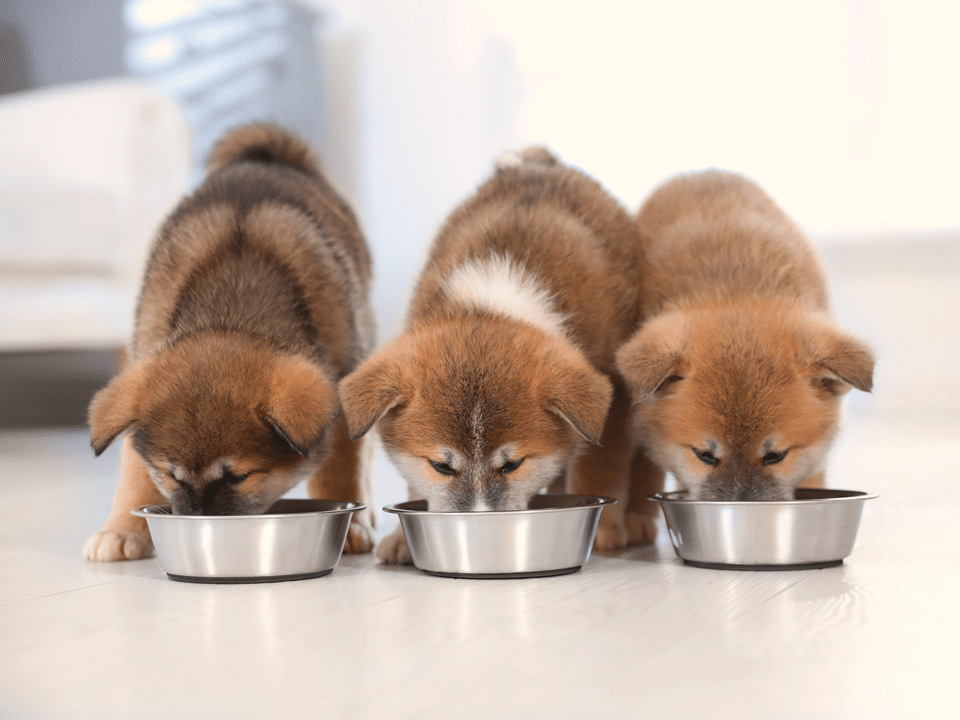
References
- FEDIAF (European Pet Food Industry Federation) (2020) Nutritional Guidelines for Complete and Complementary Pet Food for Cats and Dogs.
- <Salt, C., et al. (2017) ‘Growth standard charts for monitoring body weight in dogs of different sizes’, PLOS ONE, 12, pp. 1–28.
- Hawthorne, A.J., Booles, D., Nugent, P., Gettinby, G. and Wilkinson, J. (2004) ‘Body-weight changes during growth in puppies of different breeds’, in Waltham International Science Symposium: Nature, Nurture, and the Case for Nutrition, vol. 134, pp. 2072S–2030S.
- Case, L.P., Daristotle, L., Hayek, M.G. and Ruff, M.F.R. (2011) ‘Nutrient needs during growth’, in: Canine and Feline Nutrition: A Resource for Companion Animal Professionals, ed. H. Pohlam, Elsevier Mosby, pp. 232–233.
- Lauten, S.D. (2006) ‘Nutritional risks to large‐breed dogs: From weaning to the geriatric years’, Veterinary Clinics of North America: Small Animal Practice, 36, pp. 1345–1359.
- Schoenmakers, I., Hazewinkel, H.A.W., Voorhout, G., Carlson, C.S. and Richardson, D. (2000) ‘Effect of diets with different calcium and phosphorus contents on the skeletal development and blood chemistry of growing Great Danes’, Veterinary Record, 147, pp. 652–660.
- Tryfonidou, M.A., Van Den Broek, J., Van Den Brom, W.E. and Hazewinkel, H.A.W. (2002) ‘Intestinal calcium absorption in growing dogs is influenced by calcium intake and age but not by growth rate’, Journal of Nutrition, 132, pp. 3363–3368.

Emma Hunt
GA Pet Food Partners Junior Pet Nutritionist
Emma has an undergraduate in Animal Behaviour and Welfare and subsequently completed a Masters in Veterinary Public Health at the University of Glasgow. Following this, she worked in the agri-food industry for several years and kept her own sheep flock before joining GA in 2021. Emma enjoys coaching netball and spending time with her much loved collie Lincoln.
You may also like...
Article written by Emma Hunt
The Pros and Cons of AI in Pet Retail
You may have frequently encountered the term “AI” or “AI technology” in the media. From unlocking your phone using Face ID, asking for directions on your [...]


